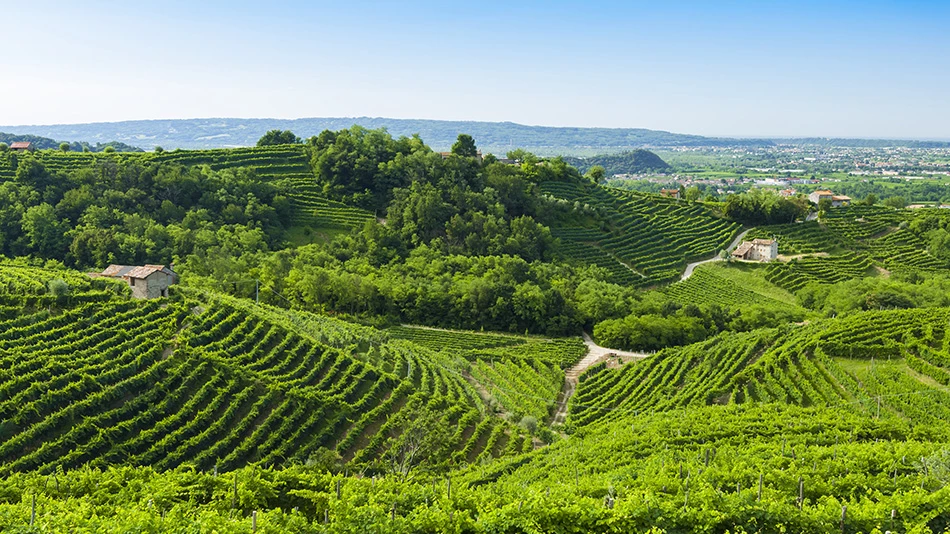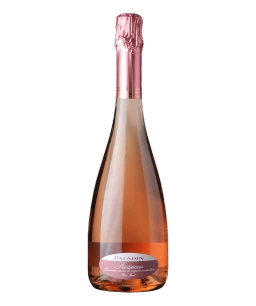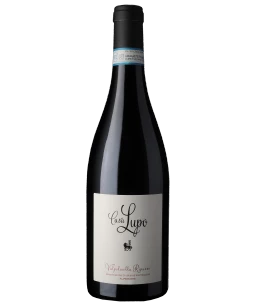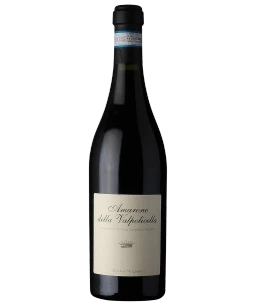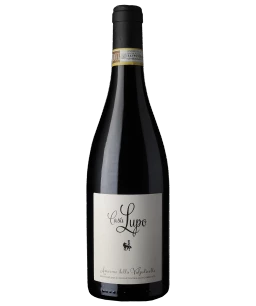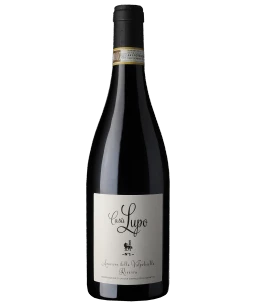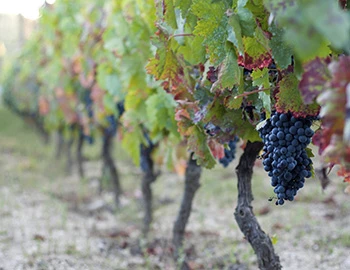Veneto
Veneto: land of the Amarone and Prosecco
Veneto stretches from the Alpine foothills, through the flat Po Valley, to the Gulf of Venice on the Adriatic coast. Two types of wine in particular have been able to celebrate spectacular successes here in recent years: Amarone growths impress with their opulent body and force, while the cheerfully bubbling Proseccos please with their fruity, grape freshness. But the region also produces drinkable everyday wines, including the white Soave and the red Bardolino.
Sparkling wines from Veneto
White wines from Veneto
White wines from Veneto
Red wines from Veneto
The spectacular success of the Amarone is evidenced by a number of facts. While in 1985, 1.3 million bottles of this wine were produced, this number today is almost 15 million. The stylistics have also changed. While the grapes were previously naturally dried in sheds for four months, air conditioning units and ventilators are used today. In addition, many Amarones are no longer aged in large, old casks, but in French barriques. This modernization has made the Amarone fruitier, lighter and more aromatic. Connoisseurs face the burden of choice: for there are still traditional Amarones with aromas of dried fruits, balsamic notes, and more prominent tannins.
Light everyday wines
In principle, however, Veneto is a rich source of light wines. The Soave, for example, which is characterized by the white Garganega variety and grows east of the city of Verona, yields dry, mild wines with a delicate bouquet and moderate alcohol content. Adept winemakers are ever more successful today at giving their Soave crus an individual terroir character. The epitome of a fresh, drinkable everyday red wine is the Bardolino, which is grown on Lake Garda. The somewhat more sophisticated Bardolino Superiore DOCG growths present themselves with a bit more complexity, without losing their crispness. The simple Valpolicella wines, with their slightly nutty flavour, are perfect accompaniments to food, while they appear noticeably more lavish in their Ripasso versions.
The Prosecco marvel
Around 75,000 hectares are planted with vines in the Veneto region. The area stretches to the Alps in the north, and to the Adriatic coast in the southeast. Venice is the cultural centre of this wine-growing region. Vines are rooted in rocky, calcareous soils with a loam- and clay-rich overlay. Because the Alps protect the wine region from the humid air masses from the north, the climate is characterized as mild and Mediterranean, despite the region’s position in northern Italy.
Prosecco has provided the region’s greatest success story in recent years. Demand is at times so great that it cannot be satisfied by winemakers. Prosecco is a thoroughly fruity sparkling wine which is largely produced from Glera grapes using the tank (or Charmant) method. It tastes best when drunk while young. While the simpler Prosecco DOC may also be produced from grapes from Friuli-Venezia Giulia, the finer Prosecco Conegliano Valdobbiadene DOCG originates from the historical heartland at the edge of the Alps, located entirely in the Veneto region. The tranquil, hilly wine region is a popular destination for visitors to Venice.
